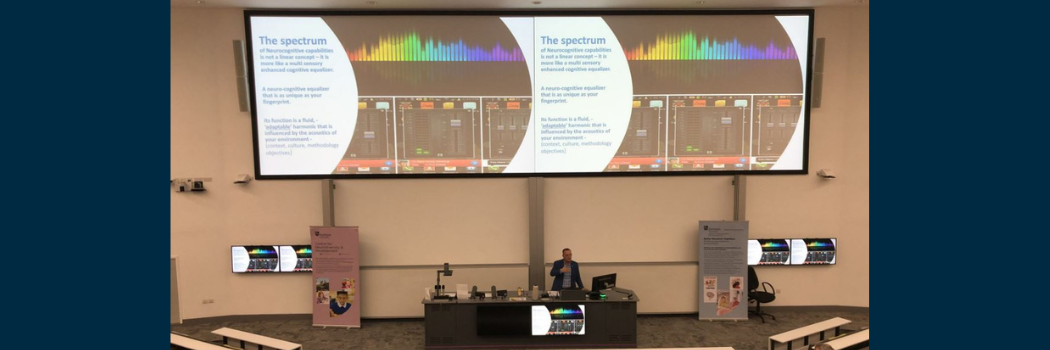
Our Centre for Neurodiversity & Development brought together researchers, practitioners and people with lived experience of neurodiversity across two successful events.
The first event, as part of the ESRC Festival of Social Science, focused on neurodiversity and school life.
It was co-developed with the Communication and Interaction Team at Durham County Council and the Investing in Children charity.
Diverse perspectives
The festival featured presentations from researchers, specialists and support workers.
They gave insight into the challenges and opportunities for neurodivergent students in education, for example young people with autism and ADHD.
Neurodivergent young people shared their experiences of navigating school life and findings were also presented from psychology PhD research projects being conducted in the Centre.
The research projects explore how autistic adolescents experience school, including the anxiety and distress they can face.
The festival was complemented by artwork created by young people from Investing in Children's Art Cafés, offering a visual representation of school life through their eyes.
Valuing neurodiversity
In a second event, Dr Tony Lloyd, CEO of the ADHD Foundation, delivered a public lecture on valuing neurodiversity across sectors such as education, healthcare and business.
More than 200 people attended across both events and parent Charlene Huntley was among those who found the sessions beneficial.
Charlene said: "As someone who is neurodiverse myself, and as a parent with neurodiverse children, I love to come and see what it is happening behind the scenes.
"I like to see where research is heading and find out ways I can get involved.
"Coming to these events keep me in the loop and helps me learn new things."
Importance of engagement
Professor Deborah Riby, Co-Director of our Centre for Neurodiversity & Development, said: "An important part of what we do at the Centre is working with community stakeholders and those with lived experience of neurodivergence.
"Our research doesn't stay in an academic silo; we continually engage with diverse audiences and embed their perspectives in our research and practice.
"This approach helps us better understand and support people with lived experience of neurodivergence and those who support and care for them."






